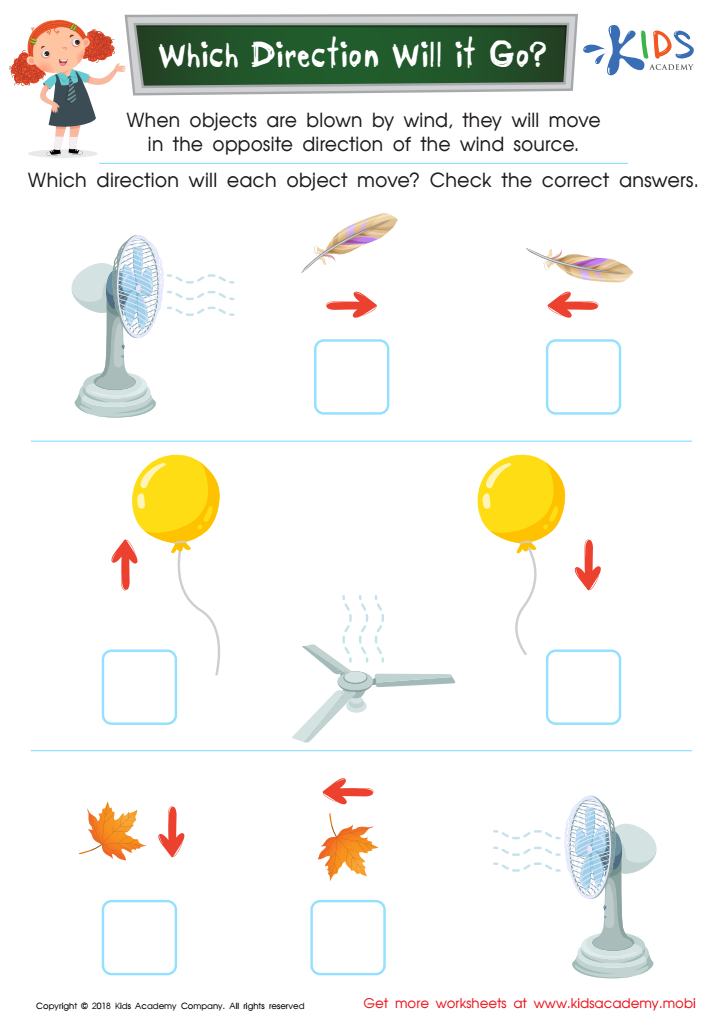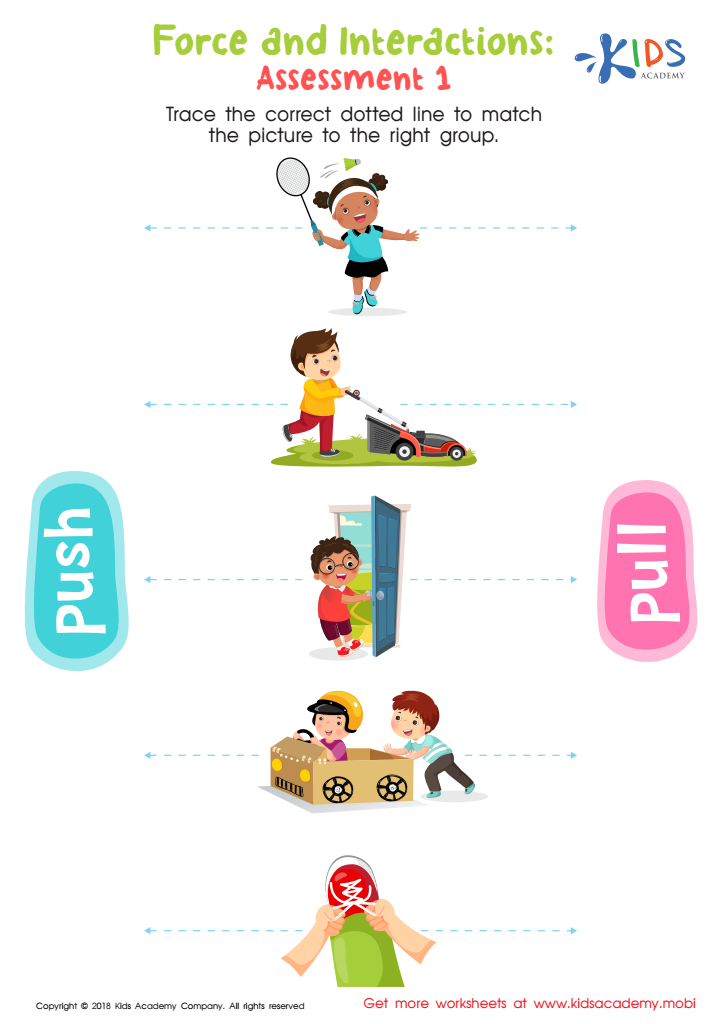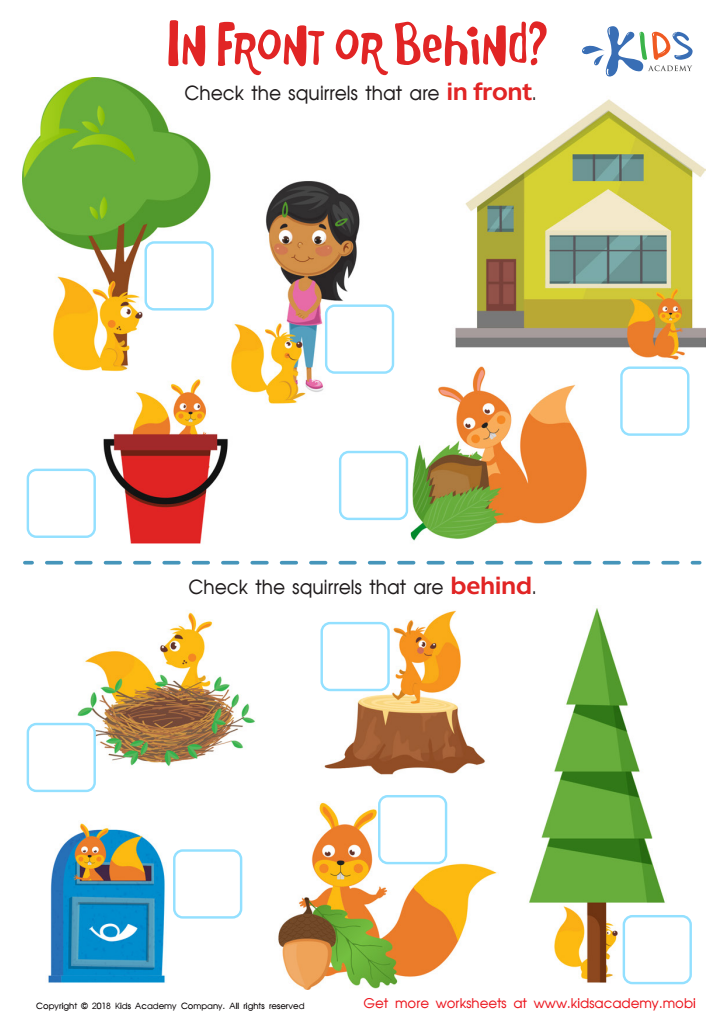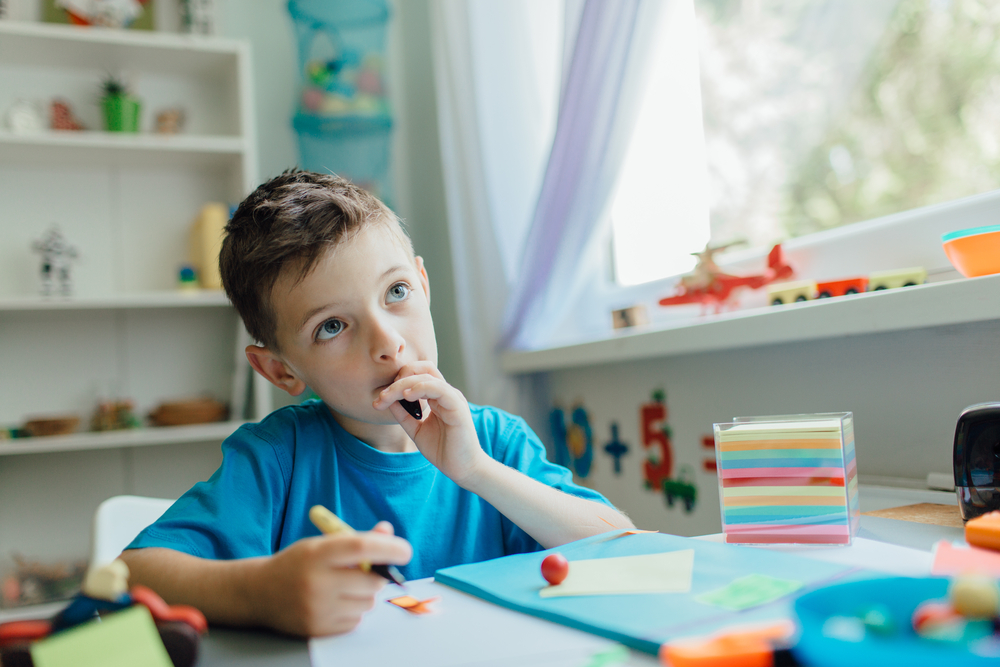Spatial awareness Science Worksheets for 5-Year-Olds
3 filtered results
-
From - To
Enhance your child's spatial awareness with our engaging Science Worksheets designed specifically for 5-year-olds! Our printable resources combine fun and learning, helping young learners develop essential skills like understanding shapes, sizes, distances, and directions. Featuring colorful illustrations and interactive activities, these worksheets cultivate critical thinking and problem-solving abilities while keeping children entertained. Perfect for home or classroom use, our resources foster a love for science and an appreciation for the world around them. Empower your child to explore and discover through hands-on learning experiences that promote growth in spatial reasoning. Unlock their potential today with our thoughtfully crafted worksheets!


Which Direction Will it Go? Worksheet


Force and Interactions: Assessment 2 Worksheet


In Front or Behind: Part 2 Worksheet
Spatial awareness is a critical skill that significantly impacts a child's overall development, particularly for five-year-olds. As children engage with the world around them, they begin to understand their relationship to objects, shapes, and sizes. This foundational skill plays a vital role in various academic areas, notably math and science. By fostering spatial awareness, parents and teachers prepare children for more complex concepts, such as geometry and problem-solving principles, they will encounter in later years.
Furthermore, spatial awareness aids in physical development and coordination. Encouraging activities like building blocks, puzzles, and navigation games nurtures fine motor skills and critical thinking abilities. Engaging in such activities promotes teamwork, communication, and creativity, important social skills for young learners.
Moreover, spatial awareness contributes to emotional well-being by allowing children to express themselves and interact more confidently with their surroundings. For parents and teachers, prioritizing spatial awareness education is essential for equipping children with vital life skills. Through purposeful play and exploration, they can cultivate self-confidence, curiosity, and resilience, setting the stage for lifelong learning. Therefore, it is crucial for both parents and teachers to integrate spatial awareness activities into early education practices to support a holistic approach to child development.

 Assign to My Students
Assign to My Students




















